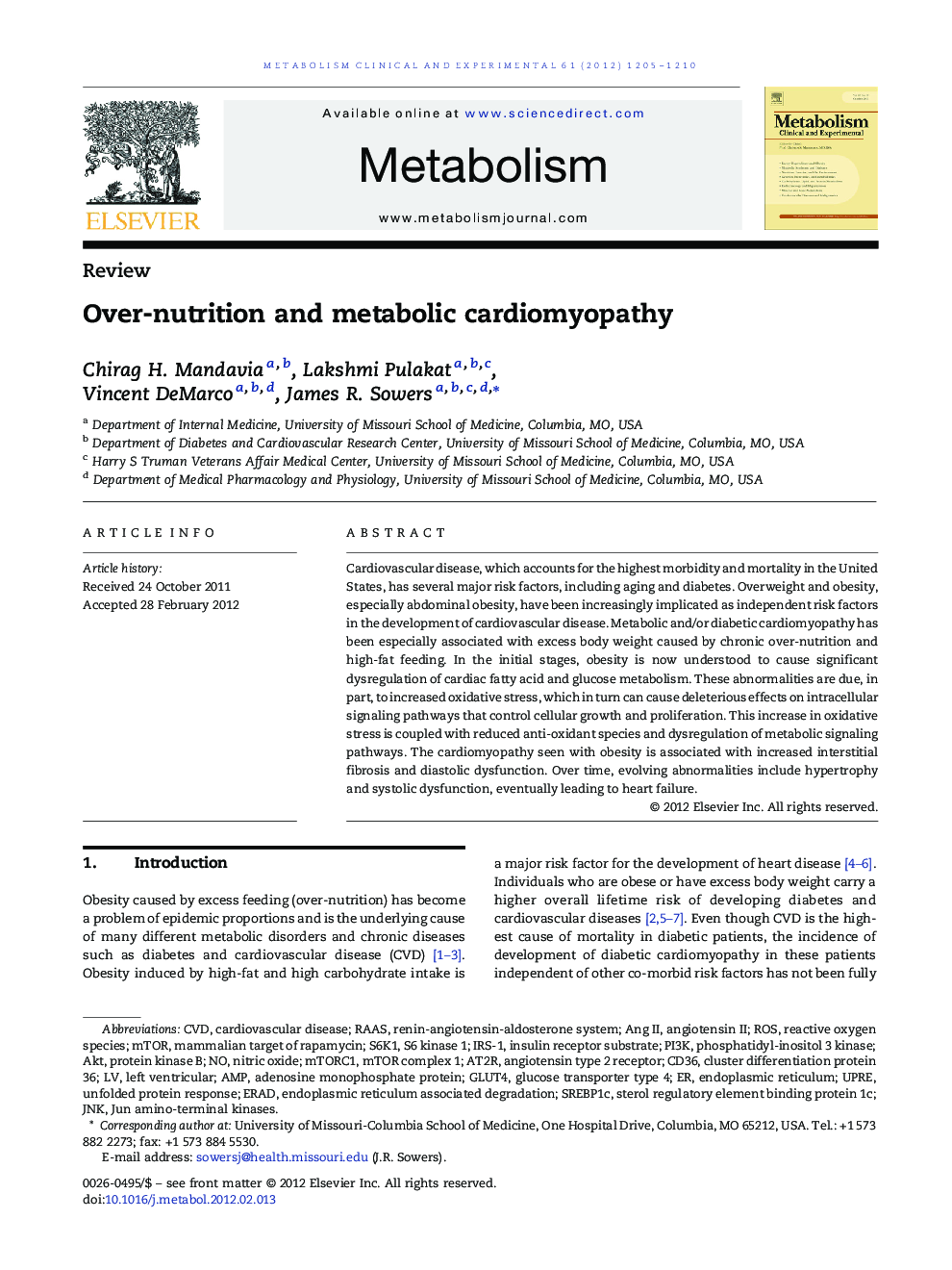| Article ID | Journal | Published Year | Pages | File Type |
|---|---|---|---|---|
| 2806079 | Metabolism | 2012 | 6 Pages |
Cardiovascular disease, which accounts for the highest morbidity and mortality in the United States, has several major risk factors, including aging and diabetes. Overweight and obesity, especially abdominal obesity, have been increasingly implicated as independent risk factors in the development of cardiovascular disease. Metabolic and/or diabetic cardiomyopathy has been especially associated with excess body weight caused by chronic over-nutrition and high-fat feeding. In the initial stages, obesity is now understood to cause significant dysregulation of cardiac fatty acid and glucose metabolism. These abnormalities are due, in part, to increased oxidative stress, which in turn can cause deleterious effects on intracellular signaling pathways that control cellular growth and proliferation. This increase in oxidative stress is coupled with reduced anti-oxidant species and dysregulation of metabolic signaling pathways. The cardiomyopathy seen with obesity is associated with increased interstitial fibrosis and diastolic dysfunction. Over time, evolving abnormalities include hypertrophy and systolic dysfunction, eventually leading to heart failure.
